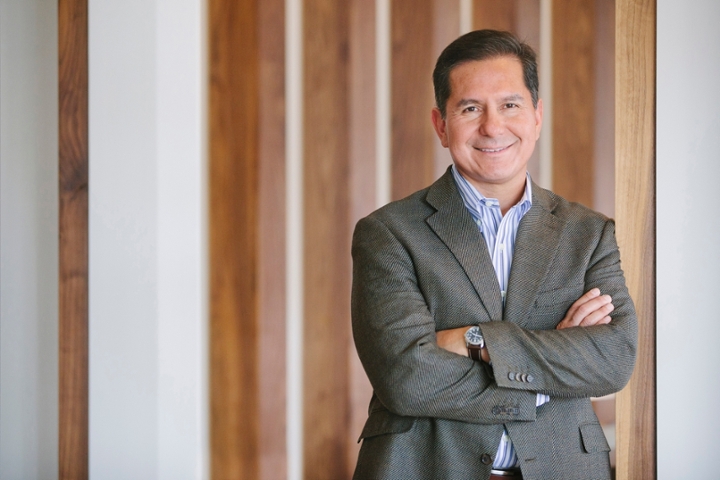
Exonerating Chief Poundmaker
The campaign for justice of Chief Poundmaker that has been going on for over a century is about to come to an end.
By TARYN RIEMERChancellor Emeritus Blaine Favel (BEd ’87), former Chief of Poundmarker Cree Nation, has been working with his community of Poundmaker Cree Nation since 1995 to set things straight and clear Chief Poundmaker’s name.
“People should be proud of Chief Poundmaker because he was a peace maker,” said Favel.
The history books currently paint Chief Poundmaker as a rebel who was tried and convicted for treason after the battle at Cut Knife Hill.
“I grew up hearing two stories. One story was the Canadian version in the textbooks where Poundmaker was a traitor and a rebel. And the story of my people that we were attacked at dawn by 300 armed soldiers and our grandfathers fought courageously with inferior weapons and they won,” said Favel.
The false narrative of Chief Poundmaker put forth by the government of the time all started when some of the people of Poundmaker Cree Nation and Chief Poundmaker went to Fort Battleford to talk to someone about the rations they were promised but weren’t being supplied after Treaty 6 was signed in 1876.
Chief Poundmaker and his people waited for two days for a chance to speak to someone, but were greeted with silence. This angered Poundmaker’s warriors and, despite his efforts to calm them down, they eventually raided the town and then returned home.
They were soon followed by Lieutenant-Colonel William Otter and over 300 Canadian soldiers who were looking for revenge. They attacked at dawn on May 2, 1885. The warriors of Poundmaker fought against the troops until the soldiers retreated. Chief Poundmaker made the decision to not pursue them, calling for peace instead.
To try and keep the peace, Chief Poundmaker turned himself in and was charged with treason. He was in jail for a year before being released due to illness. He died soon after.
Favel started his journey exonerating Chief Poundmaker when he was Chief of Poundmaker Cree Nation in 1995. He made some headway in 2017 during Canada’s 150th celebrations.
“The community asked me to take this on again. So we started a social media campaign, we started letter writing, we got into O1ttawa with meetings, we got Chief of Poundmaker to a bunch of meetings. So the real intense energy has been in the last two years,” said Favel.
His hard work has since paid off. In January of 2018, the Canadian government said they would agree to exonerate Chief Poundmaker and now they’re in the negotiation stage.
“The position of the community, is that we're prepared to accept the exoneration and the apology, but we'd like there to be compensation for approximately 100 horses, weapons and materials used to make food that was expropriated by the government and the hardships our ancestors endured subsequent to the battle because Chief Poundmaker and our community did nothing wrong,” said Favel.
Favel looks forward to negotiations being concluded this year and an apology from the government occurring in the community hopefully soon.
“It's good moment for Canada because they recognize what we now know—that this fellow was a great Canadian. It's a sign of maturity of a country that it can acknowledge a wrong and a harm and make amends in an effort to move forward,” said Favel.
“This is very much a chapter in the national reconciliation that the country is going through, post the Truth and Reconciliation Commission regarding residential schools.”

